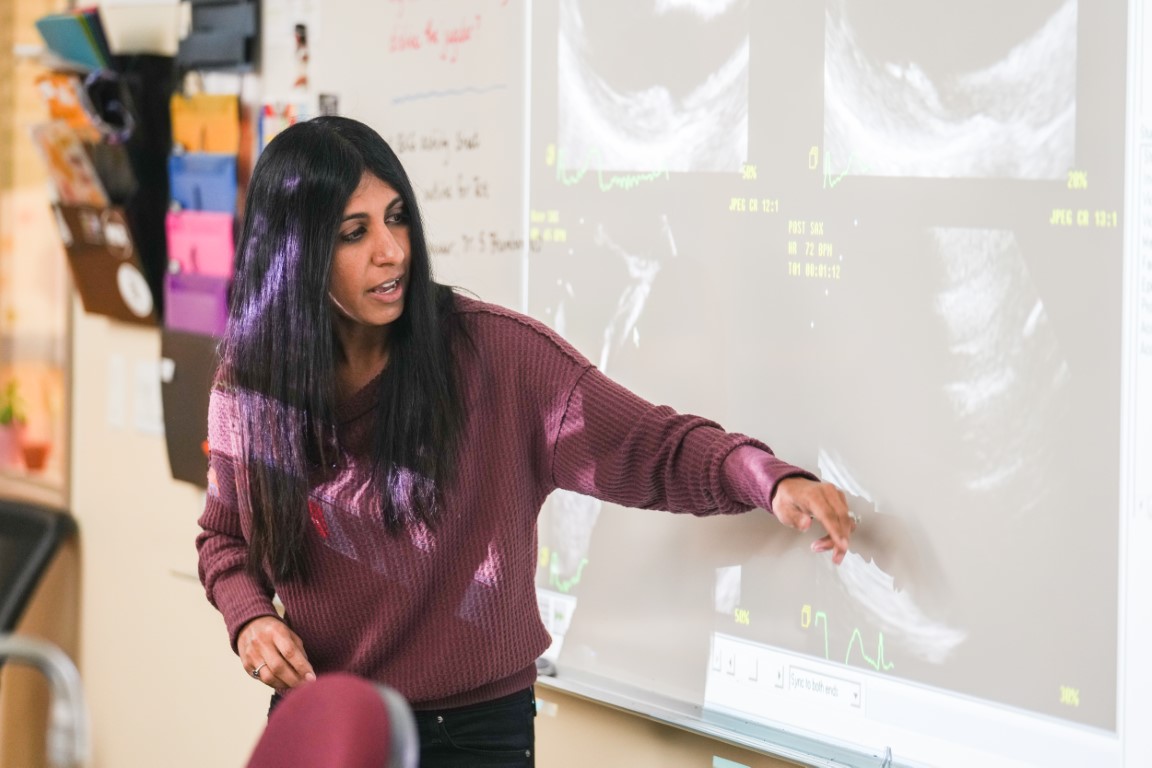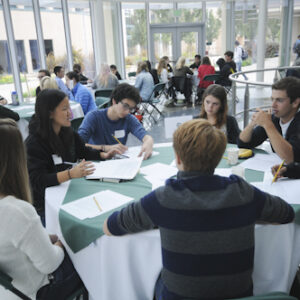Last week, Harker students attended a guest lecture by cardiologist Shalini Bhambani ’02, who provided insight into her profession with a series of case studies of patients she had helped.
In one case study, a patient required an implantable cardioverter-defibrillator, a device that monitors the heart for irregular heartbeats and delivers an electric shock to restore a normal rhythm. Another case study involved a patient suffering from endocarditis due to a staph infection, and needed a heart valve replaced. She described two types of synthetic valves and their respective pros and cons. Bioprosthetic valves use bovine, porcine or equine biological material that do not form clots but need to be replaced every 10 to 15 years, while mechanical valves made from titanium and carbon can last for the rest of the patient’s life but are prone to forming clots.










